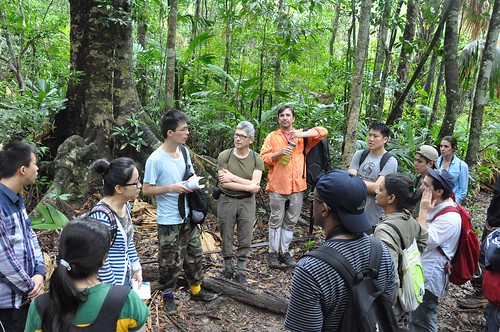CTFS-ForestGEO co-founder Stephen P. Hubbell will
receive this year’s International Prize for Biology, awarded by the Japan
Society for the Promotion of Science. The committee on the International Prize,
chaired by Dr. Takashi Sugimura, announced its selection earlier last week for
the specialized field of “Biology of Biodiversity”. The International Prize for
Biology is one of the highest scientific honors given by Japan. The prize is
granted to Dr. Hubbell for his exceptional contributions to biological and
ecological research.
Dr. Hubbell’s long and remarkable career covers a
wide-range of research topics including tropical plant ecology, resource
competition, animal behavior, and theoretical ecology. He has authored four
books and more than 220 scientific papers. He is perhaps most widely known for
his unified neutral theory of biodiversity and biogeography that offers a
nontraditional explanation for the diversity and relative abundance of species
in ecological communities. The theory has spawned a significant growth in
research in theoretical ecology.
Currently Dr. Hubbell is a distinguished professor
of ecology and evolutionary biology in the Life Sciences Division at University
of California, Los Angeles. He is a fellow of the American Academy of Arts and
Sciences and of the American Association for the Advancement of Science. He is
also founding chairman of the National Council for Science and the
Environment, an organization whose mission is to improve the scientific basis
of environmental decision-making.
In 1980 Dr. Hubbell helped establish the Barro
Colorado Island forest plot in Panama, the first of CTFS-ForestGEO’s sites.







